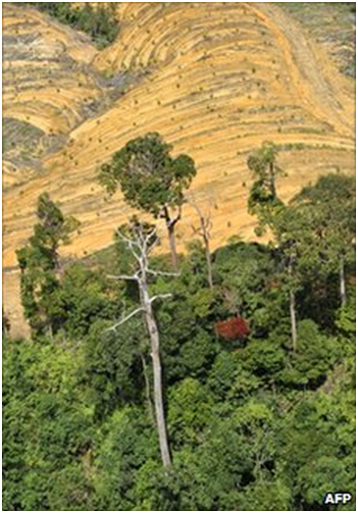Presidential Task Force in Port Loko
Agriculture has been identified as vital for the development and transformation of Sierra Leone. To address this problem, President Ernest Bai Koroma in 2008 established a Task Force of which he is Chairman to tackle and address the myriad challenges facing the sector.
On Tuesday 7th February, the first meeting to be held outside Freetown was held in the Port Loko District Council Hall with stakeholders of the sector, including farmers’ representatives, traditional leaders, government ministers and donors present.
President Koroma welcomed attendees and noted that this is the first meeting to be held outside Freetown. He reminded them that the meeting was expected to provide reviews on the agricultural sector and wished everyone fruitful deliberations.
The Minister of Agriculture, Forestry and Food Security (MAFFS) Dr. Sam Sesay did a brief presentation on the proposal for the establishment of a Strategic Grain Reserve (SGR) which he said is designed to address the spike in prices as well as to minimize impact on private incentives-consistent with promoting smallholder commercialization.
He noted that the SGR will comprise physical stockpiles that could be complemented by cash reserves, for example, three months food reserve for the country which will approximately cost government about 53 million dollars to establish.
The objective of the reserve, Dr. Sesay maintained, is to manage periods of rapidly increasing prices and cope with food emergencies such as floods. According to him, the indicative size of the SGR will be 69,000 MT (3 months of food for food insecurity). Dr. Sam Sesay however said that the exact size will be determined in due course.
On the operations of the Strategic Reserves Unit established in the MAFFS and the Ministry of Trade and Industry (MTI), the hardworking Dr. Sesay noted that decisions relating to release of rice remain with government and an early warning system could increase efficiency. He also dilated on the procurement procedure by saying that rice will be bought domestically through an open public tender to stock the reserve, while adding that the cost will be determined later.
Responding to questions, comments and observations, the Minister of Agriculture noted that the draft proposal of the SGR has been completed, while maintaining that the issue of storage is not too urgent at this preparatory stage as there are several storage facilities across the entire country.
On the issue of cost, he said that the SGR will be released whenever the market price of rice goes up. Timing of the purchase is also very important as government should not wait until February when the prices would have started going up.
President Koroma said there should be a Management Unit to handle the SGR and asked whether the meeting has concluded that the main action point is the acceptance of the proposal presented by the Hon. Minister of AFFS, Dr. Sam Sesay.
Speaking on the development of water points, Dr. Sam Sesay informed that there are 61 water points in Freetown among them four big ones with larger capacities than the Guma Valley Dam in the far west of Freetown . He spoke on the need to protect these water points through law enforcement, a-forestation, community participation, alternative livelihoods, awareness raising and pro-poor financing.
In his brief but insightful presentation, Minister of Trade and Industry, Dr. Richard Konteh said government will be purchasing about 8,000 bushels of husk rice and 3,000 bushels of grain rice to boost the SGR. He noted that government is anxious to provide a ready market for traders as the SGR should be dominated by our own local rice as a way of reserving more foreign exchange. Dr. Konteh emphasized that his ministry’s plan is to buy more of husk rice rather than milled rice, adding that they plan to buy 30,000 bushels of husk rice to kick start the process.
The MTI minister also disclosed that his ministry is working on a Local Content Policy to ensure we deal with our own local goods, which will be expected to compete with goods from other countries as they will be meeting international standards.
Since government plays a pivotal role in enhancing the private sector, Dr. Richard Konteh said governments plans to bring the interest rate for particularly Small Medium Enterprises (SMEs) to a single digit not exceeding 5% per annum. On institutional feeding, Dr. Konteh revealed that the stock in place is not enough to embark on institutional feeding, while suggesting that we should use locally produced rice to do institutional feeding rather than spending huge amounts of money and foreign exchange to import rice into the country. He also maintained that an SME fund will be established to address the financing challenges facing SMEs, at the same time the African Development Bank (ADB) will be providing training for SMEs.
Progress on the Smallholder Commercialization Programme (SCP) was effectively elaborated on by the MAFFS minister Dr. Sam Sesay. He expressed delight that the production intensification, value addition and marketing as well as construction of the ABCs are broadly on track. The focus, Dr. Sesay maintained is to have them fully operational and commercialized within the next few months. The meeting was adjourned by His Excellency President Dr. Ernest Bai Koroma.
Stay with Sierra Express Media, for your trusted place in news!
© 2012, https:. All rights reserved.






